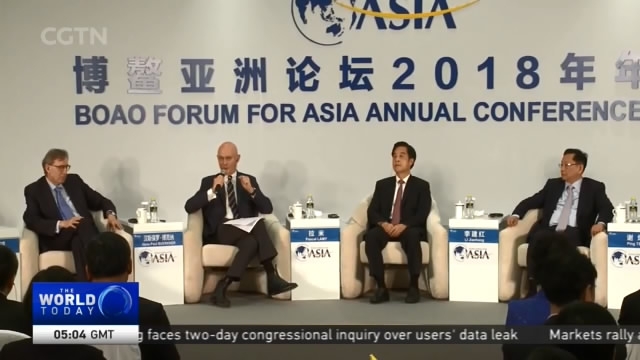
13:54, 11-Apr-2018
Boao Forum for ASIA: Guests talk state-owned enterprises, fair competition

Former WTO Director-General Pascal Lamy told a sub-forum in Boao that China would have to reduce the size of its state-owned enterprises if it wanted further economic growth. His comment triggered a lot of debate among the Chinese guests.
PASCAL LAMY FORMER DIRECTOR-GENERAL OF WTO "About the size of this, the IMF says SOEs are 40% of industrial assets, which is a large chunk for modern economy. European Commission said 70% of listed equities are SOEs. This in my view is too much and it has to shrink. WTO regulation is totally neutral on this. Whether a company is privately-owned or state-owned does not make any difference. Where there is a difference is whether or not you are subsidized. In some cases, SOEs are benefited on privilege which is a very low cost of capital."
ZHU MIN FORMER DEPUTY MANAGING DIRECTOR OF IMF "Enterprises must survive. They need to be strong. I think their size is not important. The proportion of privately-owned companies in the Chinese economy has been rising in the past few years. The proportion of SOEs in the economy will rely on the result of competition in the future between SOEs and privately-owned companies. That needs us to provide fair competition and equal policies. SOEs need to pay attention to the reforms of the national economy, but pay more attention to building its own core competitiveness. This is their future. Should they be reduced or expanded? That's not important. Core competitiveness is important.
XIAO YAQING, CHAIRMAN STATE-OWNED ASSETS SUPERVISION AND ADMINISTRATION COMMISSION "During the 40 years of opening up and reform, China's economic development has been very fast. Through this development, SOEs have become the main player in the market, including those overseas projects under the Belt & Road Initiative, where we compete fairly in accordance with international rules.

SITEMAP
Copyright © 2018 CGTN. Beijing ICP prepared NO.16065310-3
Copyright © 2018 CGTN. Beijing ICP prepared NO.16065310-3